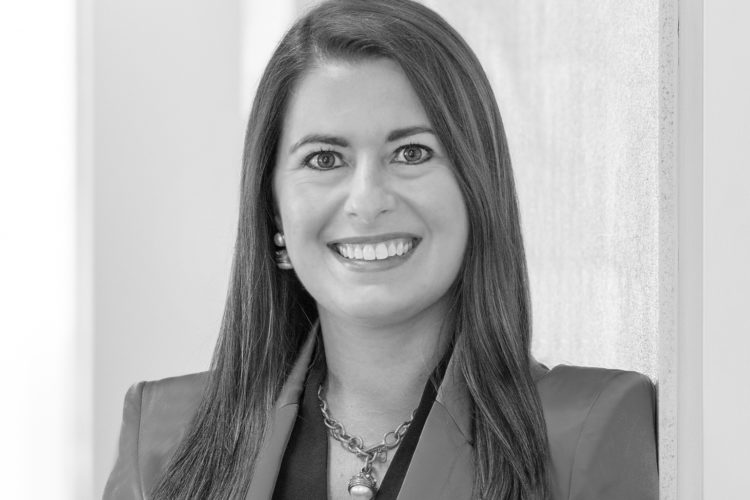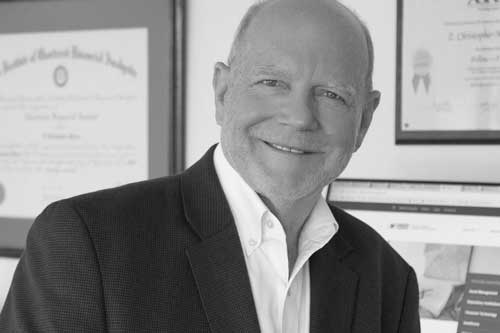Meet the Team – Scott A. Womack, ASA, MAFF
In each “Meet the Team” segment, we highlight a different professional on our Family Law team. The experience and expertise of our professionals allow us to bring a full suite of valuation and forensics services to our clients. We hope you enjoy getting to know us a bit better.
What attracted you to a career in litigation?
Scott Womack: I started doing divorce work about 13 years ago. Personally, I have found this work to be very rewarding. Divorce clients are very appreciative and I feel like I am making a difference as their Trusted Advisor throughout the process, but especially in mediation or during the trial. Often the non-business or out-spouse is not directly involved in the couple’s business and doesn’t know the value of the business or understand the process of valuation. These clients look to us to educate them and guide them through the process. Business owners or the in-spouse also see us as a value-add to the process, as they may have not gone through the business valuation process during their ownership of their company.
What type of cases give rise to your involvement in litigation matters?
Scott Womack: More often than not, I am involved in family law/divorce cases. The cases generally involve high wealth individuals and those that own businesses or business interests. In addition to the valuation and forensic work, I also participate in mediation to assist the client in an attempted settlement. If mediation is not successful, I generally submit a formal report to the Court and do testimony work at trial. Other litigation projects include breach of contract or shareholder disputes.
What drew you to financial forensics?
Scott Womack: A forensic credential allowed me to better analyze financial statements in divorce. Credentials help to frame your expertise and demonstrate your general ability to do your work. In a lot of divorce cases, especially if you are valuing a business, there can be forensic work. One example would be discretionary or personal expenses being paid through the business, which can have an impact on the value of the business as well as implications in the divorce such as possible dissipation or income available for support.
How has the valuation industry evolved since you started?
Scott Womack: Early in my career, the industry was comprised mostly of valuation generalists. In the early 2000s, financial statement reporting and valuations took on a whole new life of their own with purchase price allocations and stock based compensation. At this point, the valuation profession kind of exploded to become more specialized. We have people that now specialize in a specific service, be it divorce, financial statement reporting, or a particular industry. That is really what I have seen change. The movement from generalization to specialization. Especially for growth in your career, specialization is a great avenue for advancement by being able to be an expert in a field.
What influenced your concentration in the Auto Dealership Industry?
Scott Womack: I had a partner at my old firm who had several auto clients and I often got to work on those engagements. Some of these cases were related to divorce so I was able to see the litigation side as well. The Auto Dealership industry has some unique characteristics in its financial statements and operations. After being exposed to these differences I saw an opportunity to make an impact in this industry. I would be able to specialize in this area in order to provide the best valuation services possible.
What are a few unique characteristics of the Auto Dealership Industry?
Scott Womack: The financial statements are pretty unique in the Auto Dealership industry. Dealers have to submit monthly financials to manufacturers, and each manufacturer statement looks a little different, almost like trying to solve a puzzle. Due to the specialization and profit centers of the various departments, these statements have a lot of detail. They are very informative with not only the major categories like assets, liabilities, and revenues, but you can determine the size the service department or how many used vehicles they sold, what they’re selling them for, or how much inventory they have on the lot.
Not only do auto dealerships have to submit monthly statements, but some also report a thirteenth month statement. The thirteenth month takes the twelfth month with added year-end tax adjustments, normalization adjustments, etc. Furthermore, there is unique terminology in this industry. An example would be, “Blue-Sky”, which is the goodwill value of the dealership. It can encompass a number of factors and the Blue Sky value is often very meaningful to a dealer requesting a valuation.
There are also nuances in ownership and management that are important to know, as well as different valuation techniques and methodologies that are preferred. Someone specialized in this industry is better equipped to know what a client is looking for. I have found that my experience valuing auto dealerships has given me an advantage in knowing what to look for and what questions to ask.
What is one thing about your job that gets you excited to work every day?
Scott Womack: I have always enjoyed that the valuation and consulting business is project-based. On a project basis, you are able to work with different owners and different industries all across the board. One of my favorite parts of a project is conducting the management interviews and site visits. While the financial statements paint a picture and supply the quantitative results of operations, the management interviews provide much of the qualitative factors and allow you to gain an understanding of the company, the industry and the risk factors that they face. I enjoy meeting different business owners and learning about their successful companies and history.





